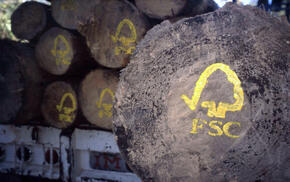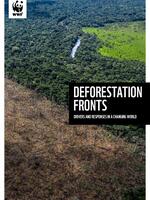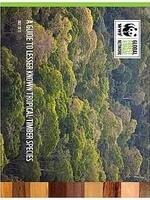Increasing global demand for low-cost timber products supports a multi-billion dollar business of illegal and unsustainable logging in forests worldwide. According to some estimates, logging in violation of national laws accounts for 8-10% of global production and trade in forest products. It also represents 40-50% of all logging in some of the most valuable and threatened forests on earth. Consumption of tropical timber by the U.S. and other industrial countries plays a significant role in tropical deforestation.
Trade in forest products has increased significantly over the past 50 years, especially in processed wood products such as sawn timber, pulpwood, board, and wood-based panels. According to the United Nation’s Food and Agriculture Organization, wood-based panel trade has skyrocketed 800 percent in the past three decades.
The world's natural forests cannot sustainably meet the soaring global demand for timber products under current forest management practices. According to the Center for International Forestry Research (CIFOR), approximately 24.7 million acres of fast-wood plantations—or commercially planted forests— exist worldwide. Each year around 2.5 million acres of land is converted to fast-wood forests. While intensive production is essential to meet global demand and take pressure off of the world’s forests, there can be significant negative impacts of these plantations. Some have been created from the conversion of high conservation value natural forests, and some have resulted in significant social and environmental impacts.
WWF believes that demand for responsible forest products in international trade can provide enormous incentives for sustainable forest management. However, in the absence of appropriate forest management policies, environmental and social safeguards, and responsible demand, trade can negatively impact forest conservation.
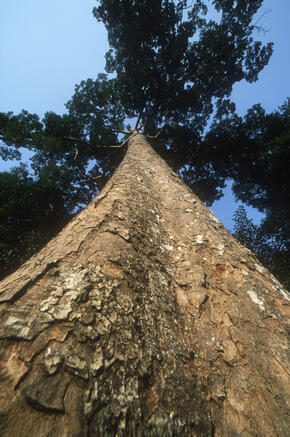

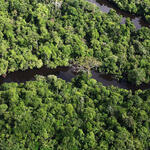 Amazon
Amazon
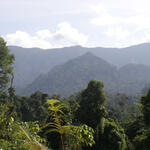 Borneo and Sumatra
Borneo and Sumatra
 Chimpanzee
Chimpanzee
 Congo Basin
Congo Basin
 Elephant
Elephant
 Jaguar
Jaguar
 Orangutan
Orangutan
 Tiger
Tiger
